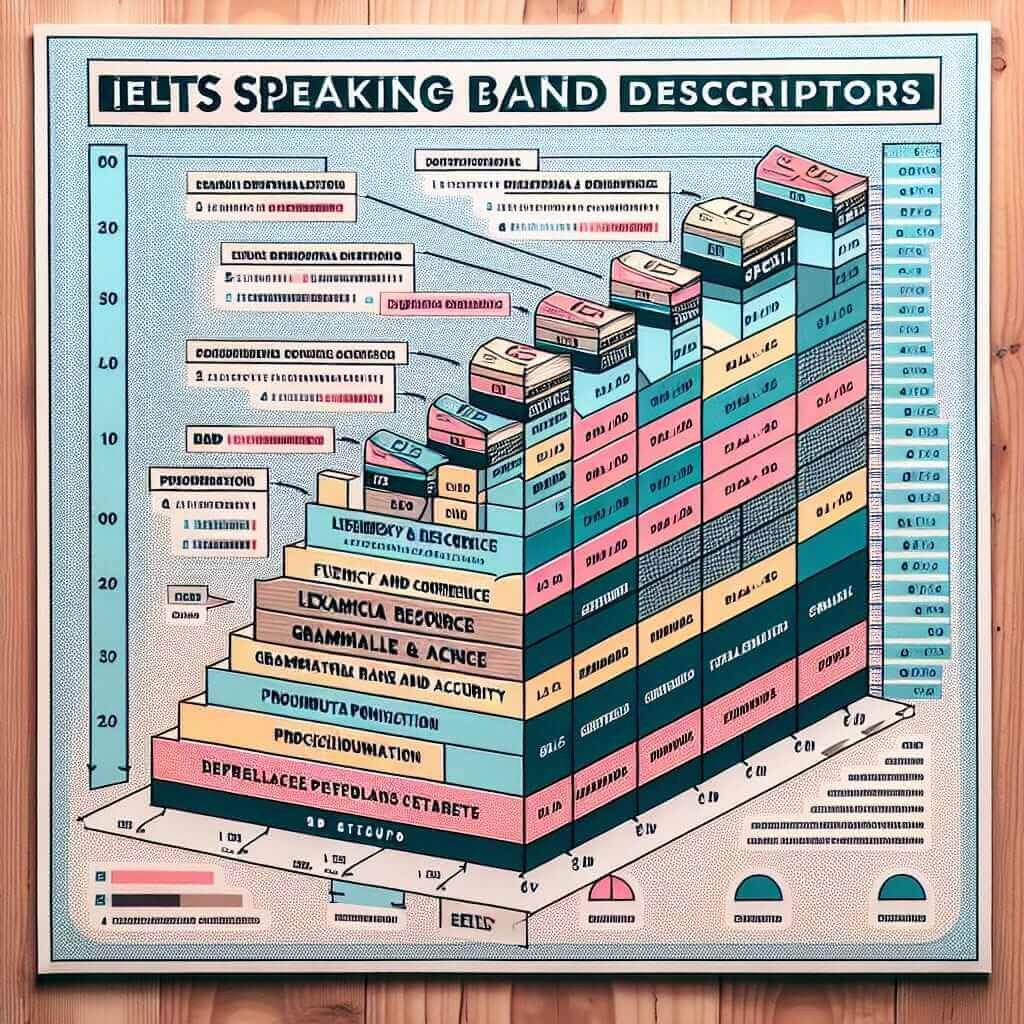The IELTS Speaking test often causes candidates significant anxiety. As an IELTS instructor with over 20 years of experience, I understand this feeling. However, with the right approach and consistent effort, you can confidently face the examiner and achieve your desired band score. This comprehensive guide provides valuable insights and strategies to help you excel in the IELTS Speaking test.
Understanding the IELTS Speaking Test
The IELTS Speaking test is a one-on-one interview with a certified examiner, lasting 11-14 minutes. It is divided into three parts:
Part 1: Introduction and Interview (4-5 minutes)
This part involves general questions about yourself, your interests, hobbies, and familiar topics like work or study. It aims to assess your fluency, pronunciation, grammar, and vocabulary in a conversational context.
Part 2: Individual Long Turn (3-4 minutes)
Here, you receive a cue card with a specific topic and some prompts. You have one minute to prepare and then speak for up to two minutes on the topic. This part evaluates your ability to organize ideas, develop a coherent narrative, and demonstrate a wider range of vocabulary and grammatical structures.
Part 3: Two-Way Discussion (4-5 minutes)
This final part involves a more in-depth discussion related to the topic introduced in Part 2. The examiner will engage you in a conversation, asking for your opinions, justifications, and examples. It tests your ability to express and justify your viewpoints, analyze issues, and use complex language effectively.
Effective Strategies for IELTS Speaking Preparation
1. Master the IELTS Speaking Band Descriptors
Understanding the assessment criteria is crucial to achieving your desired score. Familiarize yourself with the IELTS Speaking Band Descriptors, which outline the specific requirements for each band level in fluency and coherence, lexical resource, grammatical range and accuracy, and pronunciation.

2. Cultivate Fluency and Coherence
- Speak Regularly: The key to fluency is consistent practice. Find opportunities to engage in English conversations with native speakers or language partners.
- Record Yourself: Recording yourself while speaking allows you to identify areas for improvement in pace, pauses, and clarity.
- Use Discourse Markers: Utilize transition words and phrases like “however,” “moreover,” “in addition,” and “on the other hand” to connect ideas smoothly and signal logical transitions.
3. Enhance Lexical Resource
- Expand your Vocabulary: Actively learn new vocabulary related to various topics, paying attention to synonyms, collocations, and idiomatic expressions.
- Use a Range of Vocabulary: Avoid repetition by using a variety of words and phrases to express your ideas.
- Paraphrase Effectively: If you forget a word, don’t panic. Try to paraphrase or explain the meaning using different words.
4. Improve Grammatical Range and Accuracy
- Review Grammar Rules: Brush up on essential grammar concepts like tenses, articles, prepositions, and sentence structures.
- Practice Complex Structures: Incorporate a variety of sentence structures, such as complex and compound sentences, to showcase your grammatical range.
- Focus on Accuracy: While it’s good to use a range of grammar, prioritize accuracy to avoid grammatical errors that can affect your score.
5. Work on Pronunciation
- Listen Attentively: Pay close attention to the sounds and intonation patterns of native speakers. Mimic their pronunciation to improve your own.
- Practice Speaking Clearly: Articulate your words clearly and pronounce sounds accurately, focusing on vowel and consonant sounds that might be challenging.
- Record and Analyze: Use a voice recorder to identify areas where your pronunciation needs improvement.
Example from a Real IELTS Speaking Test
Part 2 Topic: Describe a time you had to use your communication skills to solve a problem.
Part 3 Discussion:
- What are some common communication problems people face in the workplace?
- How can technology be used to improve communication?
- Do you think social media has made people better or worse communicators?
Tips for Success
- Practice Regularly: Consistent practice is key. Simulate the test environment by practicing with a partner or using online resources.
- Don’t Memorize Answers: Examiners can easily spot memorized responses. Focus on developing ideas naturally during the test.
- Stay Calm and Composed: Nerves are normal, but try to relax and speak confidently.
- Be Yourself: Use natural language and be authentic in your responses.
Conclusion
Thorough preparation is crucial for excelling in the IELTS Speaking test. By following these tips, consistently practicing, and familiarizing yourself with the test format and assessment criteria, you can confidently approach the exam and achieve your desired band score. Remember to stay calm, focus on communicating your ideas clearly and effectively, and showcase your language skills to the best of your ability. Good luck!